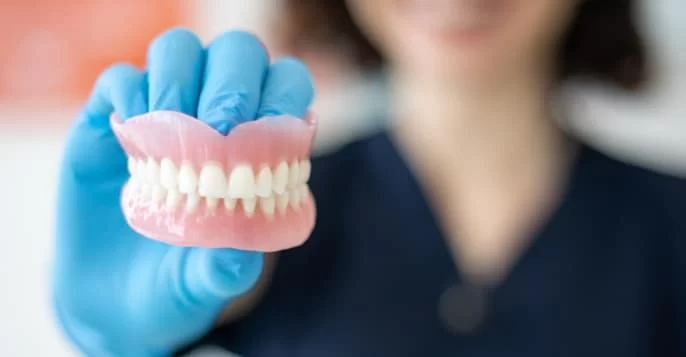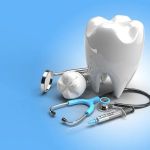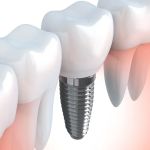
- why-proper-cleaning-of-dental-prosthetics-is-crucial
- daily-routine-for-cleaning-dental-prosthetics
- what-to-avoid-when-cleaning-dental-prosthetics
- deep-cleaning-and-maintenance-strategies
- real-case-how-cleaning-changed-a-life
- where-to-find-the-right-products-and-help
1. Why Proper Cleaning of Dental Prosthetics Is Crucial
Dental prosthetics, including dentures, bridges, and implants, are essential for restoring oral function and aesthetics. But just like natural teeth, they demand consistent care. Ignoring proper cleaning not only shortens the lifespan of your prosthetics but can lead to oral health issues such as bad breath, gum disease, and infections.
Patients often assume that because prosthetics aren't "real teeth," they require less maintenance—this is a dangerous myth. In fact, plaque and food debris can accumulate on prosthetics just like on natural teeth, creating an ideal environment for harmful bacteria.
2. Daily Routine for Cleaning Dental Prosthetics
2.1 Gentle Brushing Twice a Day
Use a soft-bristle brush specifically designed for dental prosthetics. Regular toothbrushes may be too abrasive and damage the surface. Brushing in the morning and before bed removes food particles and bacterial film effectively.
2.2 Rinse After Every Meal
A quick rinse with lukewarm water after eating helps dislodge food particles trapped between the prosthetic and your gums. This habit significantly reduces the risk of odor and infection.
2.3 Use Non-Abrasive Cleaners
Avoid regular toothpaste, which often contains abrasive ingredients. Opt for professional denture cleaning pastes or tablets that gently remove stains without damaging the appliance.
3. What to Avoid When Cleaning Dental Prosthetics
3.1 Hot Water
Never use boiling or very hot water to clean prosthetics—it can warp the material, making them uncomfortable or even unusable.
3.2 Bleach or Harsh Chemicals
Although it may seem effective, bleach and similar chemicals can degrade the material and are hazardous to your health if residues are left on the prosthetic. Stick with products specifically designed for prosthetic dental care.
3.3 Ignoring Manufacturer Instructions
Every prosthetic device is different. Always follow the specific cleaning guidelines provided by your dentist or the manufacturer. Disregarding these instructions can void warranties or cause irreversible damage.
4. Deep Cleaning and Maintenance Strategies
4.1 Weekly Soaking
Soaking your dental prosthetics once or twice a week in a cleaning solution helps remove stubborn deposits and refresh the device. Ensure the product is recommended for your specific type of prosthetic.
4.2 Ultrasonic Cleaners
An increasingly popular solution is an ultrasonic cleaner. These small devices use sound waves to remove grime in hard-to-reach spots. It’s a great investment if you wear prosthetics daily.
4.3 Regular Dental Checkups
A professional dental check at least every six months ensures your prosthetic is in good condition and your mouth remains healthy. Any misalignment, looseness, or signs of infection can be caught early.
5. Real Case: How Cleaning Changed a Life
Take Susan’s story for example. A retired teacher in her 60s, Susan began experiencing persistent mouth sores and bad breath. She had worn full dentures for three years but admitted she only rinsed them occasionally. After a visit to her dentist and a consultation on proper cleaning methods, her routine changed.
Using proper brushes, soaking solutions, and a consistent daily routine, Susan saw a complete turnaround in her oral health within two weeks. Her confidence returned, and so did her social life. This case underscores how dramatically oral hygiene can impact overall well-being.
6. Where to Find the Right Products and Help
If you’re unsure about which cleaning tools or products are best for your dental prosthetics, seeking advice from professionals is key. At Dentistry Toothtruth, you’ll find not only a curated selection of trusted prosthetic care products but also expert recommendations tailored to your needs.
Whether you wear partials, bridges, or full dentures, making an informed choice on your cleaning routine starts with quality information and reliable tools. The right solution can make all the difference—not just for your prosthetics, but for your quality of life.







 MGK Dental0.0 (0 review)
MGK Dental0.0 (0 review) Think Better Life - Orofacial Pain, TMJ & Sleep Disorder Solutions Chicago4.0 (11 review)
Think Better Life - Orofacial Pain, TMJ & Sleep Disorder Solutions Chicago4.0 (11 review) Jin Hahn, DMD4.0 (18 review)
Jin Hahn, DMD4.0 (18 review) Community Dental Care - Maplewood2.0 (224 review)
Community Dental Care - Maplewood2.0 (224 review) Northland Family Dentistry4.0 (111 review)
Northland Family Dentistry4.0 (111 review) Dental365 - Bellmore4.0 (318 review)
Dental365 - Bellmore4.0 (318 review) The Importance of Oral Health Education During Pregnancy for a Healthy Pregnancy
The Importance of Oral Health Education During Pregnancy for a Healthy Pregnancy Best Tips for Brushing Your Teeth Properly for Healthy Gums: Essential Techniques for Oral Health
Best Tips for Brushing Your Teeth Properly for Healthy Gums: Essential Techniques for Oral Health Why Skipping Dental Checkups Can Lead to Bigger Oral Health Problems
Why Skipping Dental Checkups Can Lead to Bigger Oral Health Problems Advantages of Porcelain Dental Restorations
Advantages of Porcelain Dental Restorations How Can Diabetes Cause Tooth and Gum Problems? Preventing and Managing Oral Health Issues
How Can Diabetes Cause Tooth and Gum Problems? Preventing and Managing Oral Health Issues Healthy Habits for Promoting Good Oral Health and Hygiene: Tips for a Healthy Smile
Healthy Habits for Promoting Good Oral Health and Hygiene: Tips for a Healthy Smile